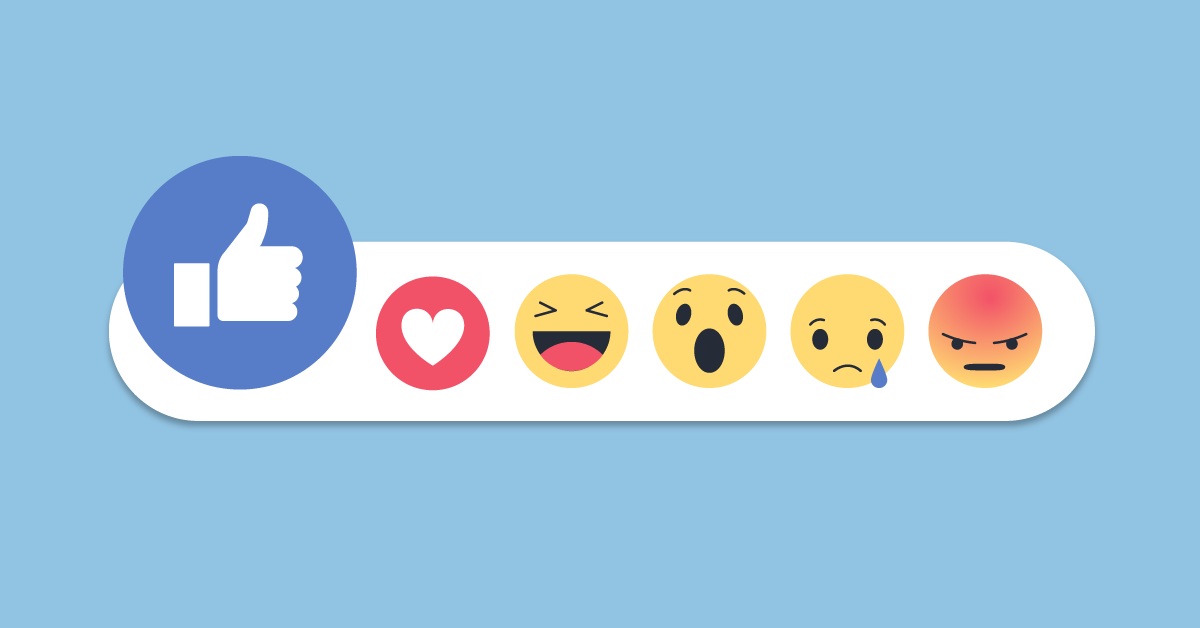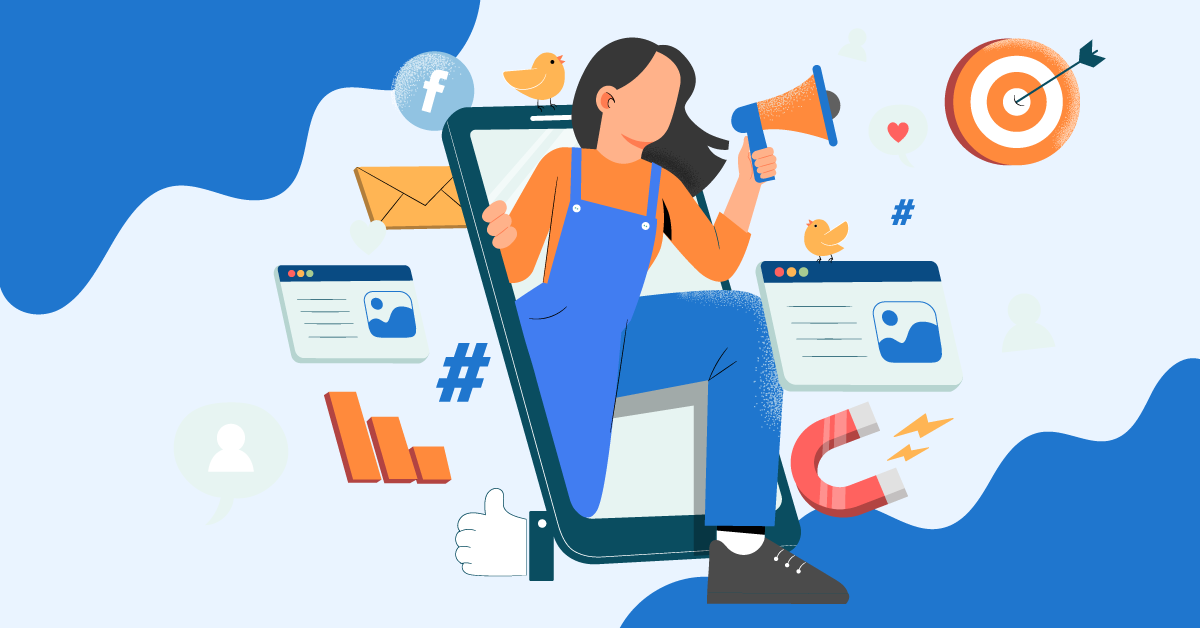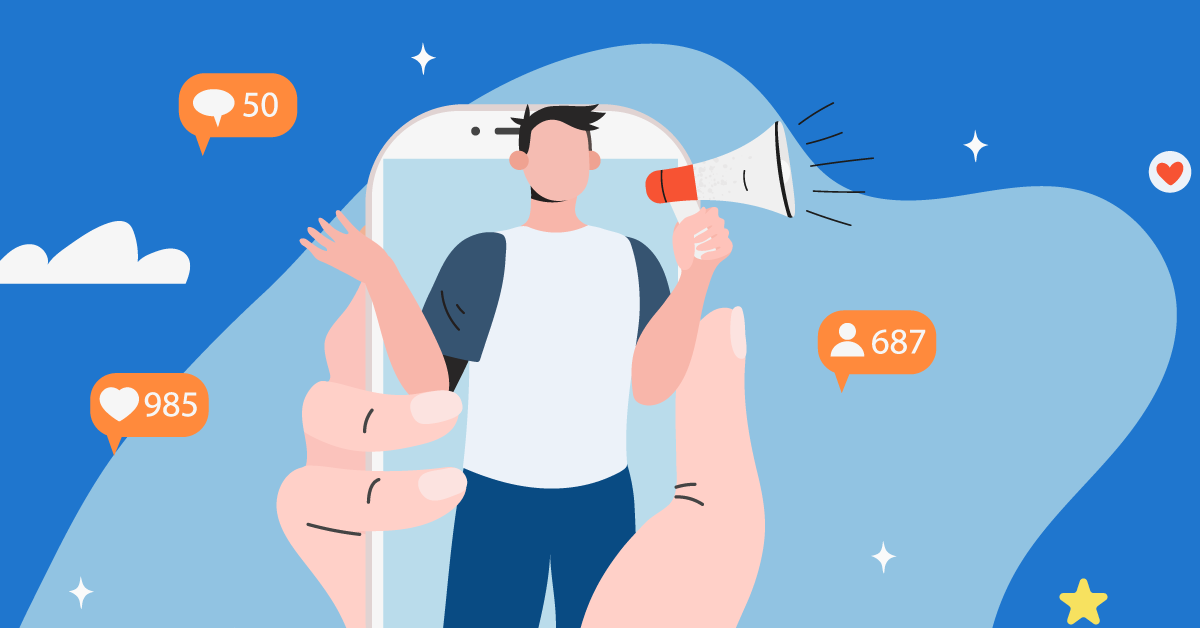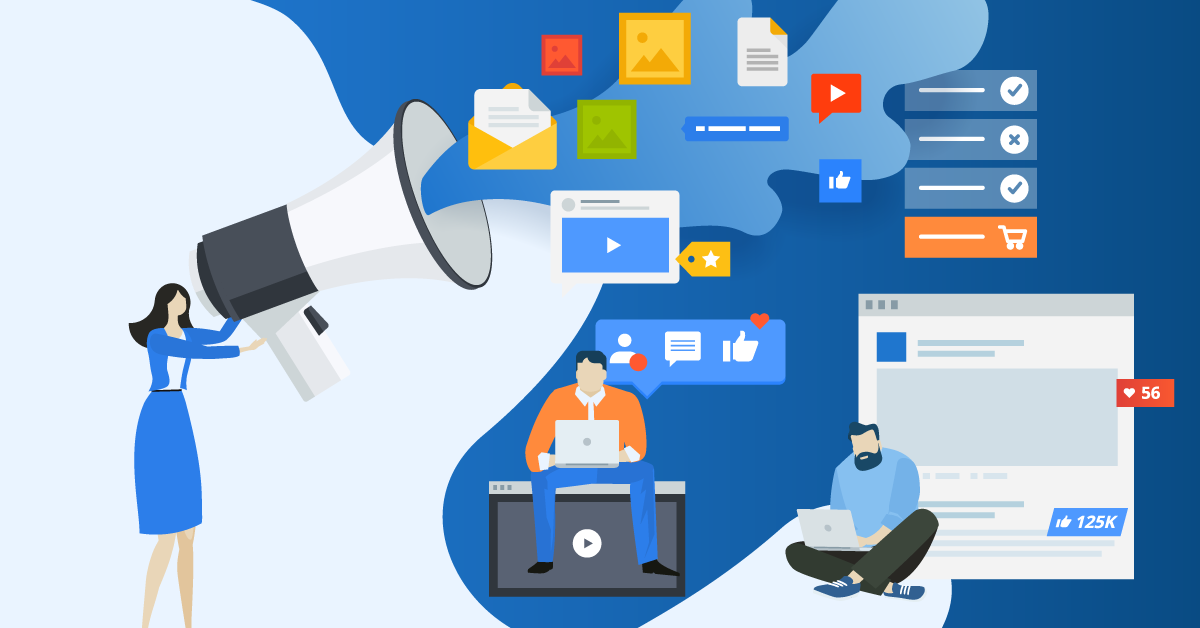When our clients first approach us, it’s usually a constant push and pull of how they think the online world works, and how our data from working across various industries either supports or disproves their views.
What makes us different though is how we usually turn the tables and shift from how our services work, to asking top to bottom what their business actually needs instead.
One common hesitation we receive is whether Facebook should be a channel they should be focusing on, which is surprising given that almost half of the world uses it.
Frequent concerns range from variations of:
- Do we really need a Facebook page?
- Do we really need to run ads on Facebook?
- Or (most commonly), we’re a B2B company— does my market exist on Facebook?
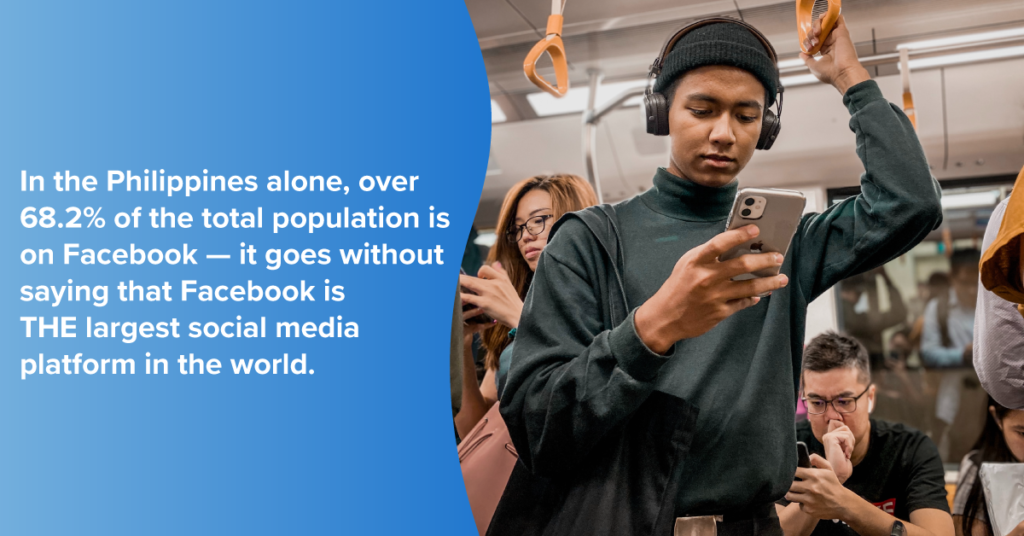

In the Philippines alone, over 68.2% of the total population is on Facebook— it goes without saying that Facebook is THE largest social media platform in the world.
data by NapoleonCat and Statista
With that in mind, here are three reasons why you need to set up and maintain your brand’s Facebook page:
1. Intercepting Customer Behavior
Say, for example, you come across a new indie shoe brand that catches your attention— let’s call it Shoemacher.
Typically, what’s the first thing you do?
Most of us open up Google and type in the brand’s name— What’s their Instagram account? Do people talk about them on Facebook? Are they online?
You find their website and proceed to browse through their catalog. It looks cool, but you don’t decide to buy it. Maybe some other day?
Payday comes and you open up your Facebook feed. Low and behold, Shoemacher’s front and center on your page with a promo for 10% off— feeling good about the payday, you jump into the store and buy your first pair.
This is what’s called a retargeting ad— customers are 70% more likely to convert when shown retargeting ads.
That’s the power of Facebook. Not only is this a tool to share updates about your brand, but this is also a platform to activate powerful tools for your business such as ad campaigns and signup forms.
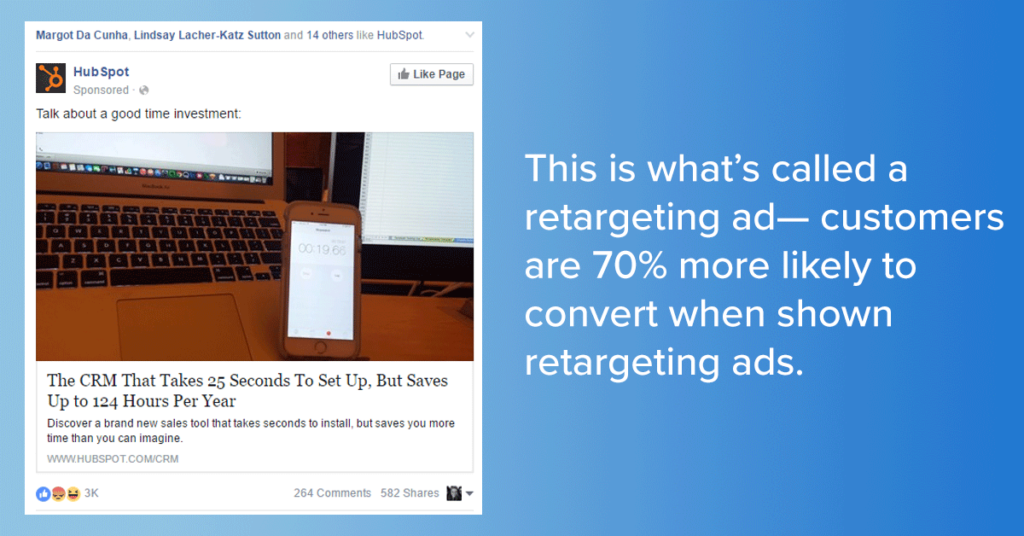

Taking a look at HubSpot, a B2B platform that sells marketing and CRM tools, their retargeting ads focus more on how easy to set up the platform is and how easy it is to get started with their free subscription plan.
Knowing that their customers’ frequent objections were setup time and the platform’s benefits, they were able to address it with just one headline and one cheeky image.
Addressing your customers’ hesitations not only makes your content more engaging, but it also loosens up leads during the sales process.
2. Branding and Community Management
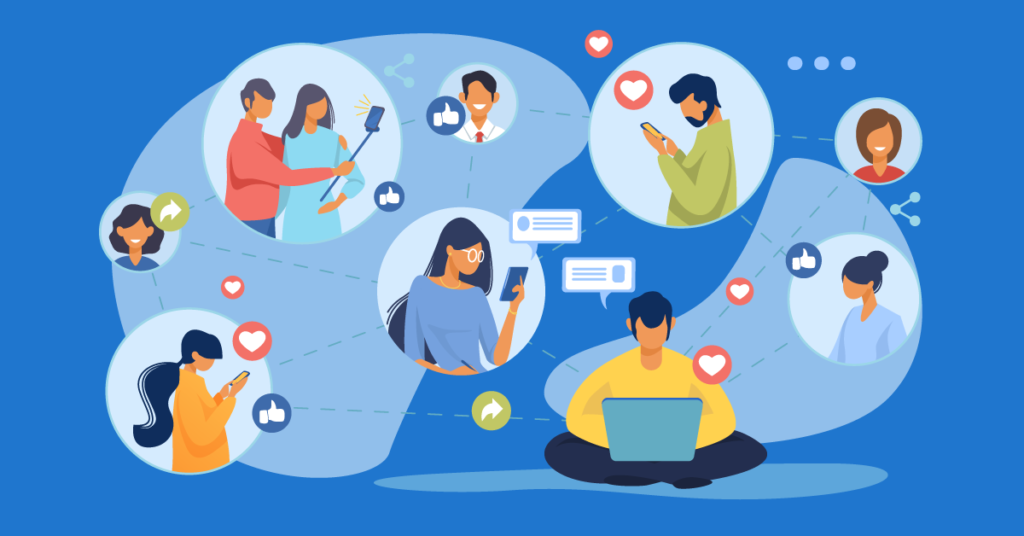

Now, say you decide to jump into Shoemacher’s Facebook page instead.
What are the first things you check?
How are the reviews? How’s their customer support? How many likes does the page have? Do people engage, comment, or at least talk about it?
Chances are if you’re not doing it, your competitors will— and they’ll do a real, good job about it.
Opening up online channels such as Facebook enables you to explore new ways to talk to your audience, answer or receive inquiries, or basically just engage with them through reactions or comments.
Case in point: Philippine startup, Angkas.
Angkas is a motorcycle startup with an attitude— their Facebook alone boasts an incredible 593K follower count, with every post gaining a minimum of 1,000+ engagements.


Their content and online persona alone have greatly helped their frequent clashes with local regulators, with their fans constantly rallying them in times of need.
3. Reaching Your Target Market, Even If You’re A B2B Company
What if you’re a B2B business trying to grow online? Is Facebook a good channel to try out?
Whether it’s CEOs, managers, or decision-makers (like you), chances are huge that they own a Facebook account as well.
As Gary Vaynerchuk puts it— they might not be on the platform as Dr. John, CEO of X, but they’ll most likely be there as John, loving husband, and father of two.
And once they’re on the platform, they’ll more likely browse it outside of their work hours— pairing that opportunity with the right content that answers their questions or fears about their business puts your foot in the door and places your brand top of mind.
Shopify, a B2B platform that helps businesses set up online stores, focuses solely on stories about entrepreneurs and e-commerce.
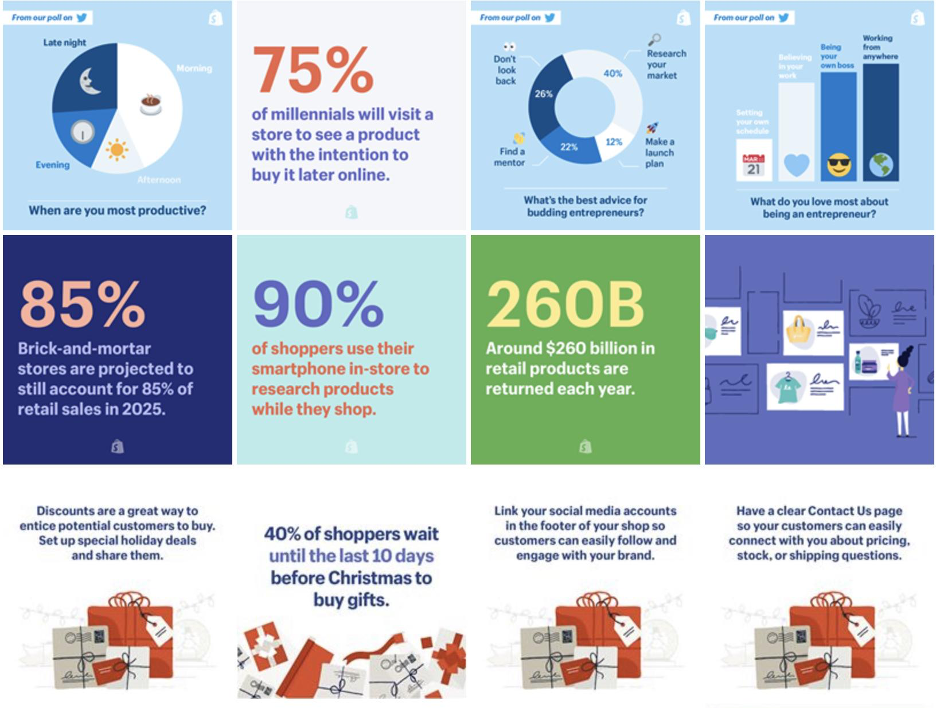

But their approach focuses less on their platform’s features and subscription costs, and more on how their platform is shaping the world of e-commerce as we speak— the perfect way to market B2B on personal social media sites.
Conclusion: Don’t Miss Out!
Maybe, you’ve already started a page for your brand a long time ago and just let go after a couple of posts. [Read: Eight Media’s Social Media Marketing Guide]
Maybe you started posting with a giddy attitude and just forgot about it when you noticed you weren’t getting any engagements.
Or maybe you haven’t tried anything at all with Facebook, and are just curious if it fits your brand or target market.


From opening up new tools to help bring in new customers, to boosting your online brand and standing out against competitors, it’d be irresponsible for your brand if you didn’t start with Facebook.

